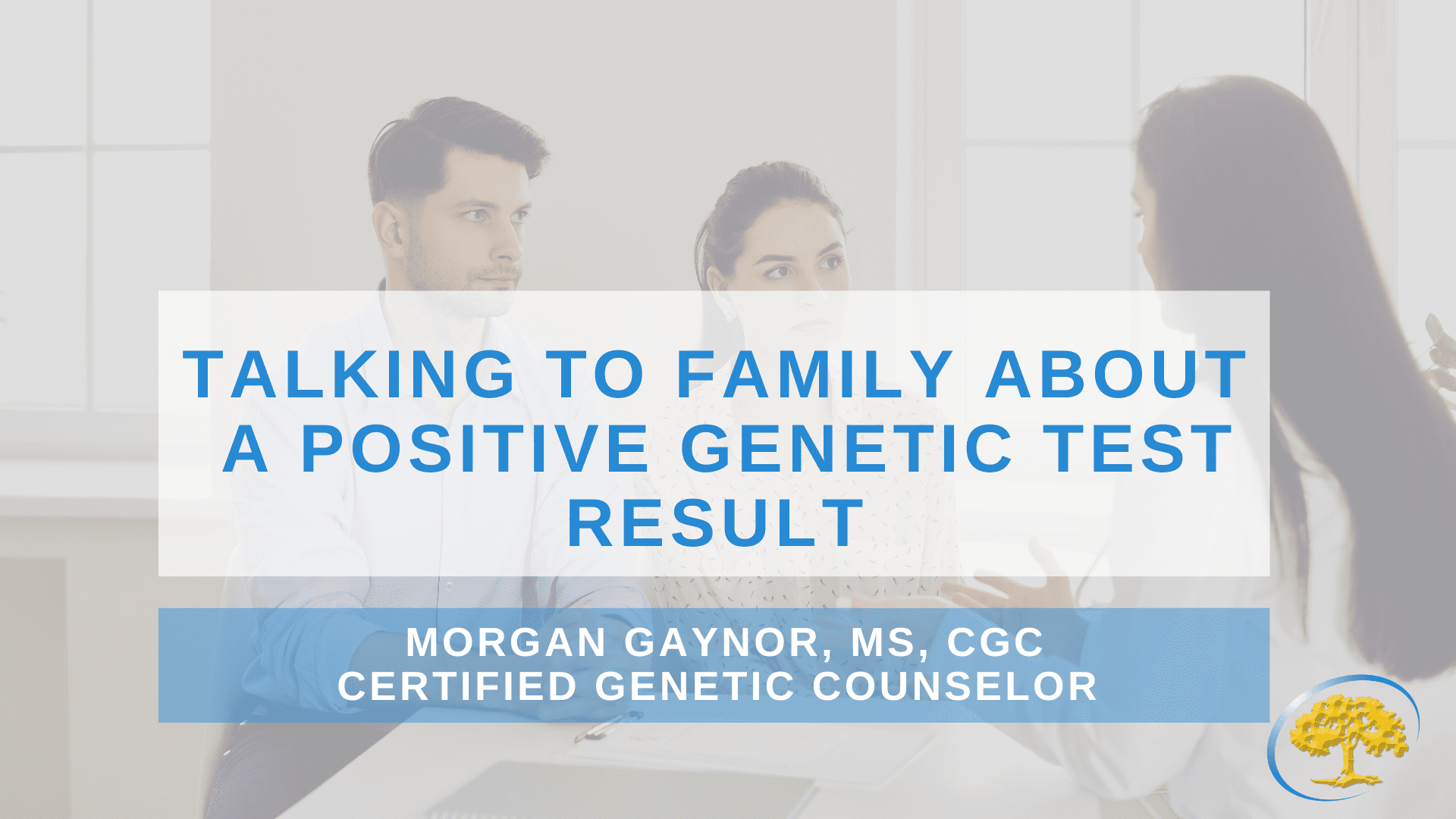
Posted 2 years ago
Talking to Family About a Positive Genetic Test Result
Finding out you tested positive for a gene mutation associated with an inherited risk for cancer can lead to experiencing feelings of anxiety, fear, or in some cases, even peace as it may provide clarity. Amidst the whirlwind of feelings running through your head, you think “who needs to know about this result?” and “what do I say?”. Because your result is indicative of a hereditary cancer risk, sharing your positive test result with family members is one of the most impactful things you can do. However, sometimes this is easier said than done.
Depending on your family dynamics, there are inevitable roadblocks that can make it a difficult discussion to have. If your relatives are aware that you’re having genetic testing, a conversation about the results may arise naturally. However, that is not always the case. We know that some people struggle with the guilt of potentially passing on a gene mutation to their family members. All of these feelings are completely normal, so please remember you are not alone. In hopes of making this process as easy as possible for you, we’ve assembled a list of the main points to go over with family members when talking to them about your results:
– If your test result is positive for a gene mutation associated with an inherited risk for cancer, your children, siblings, and parents have a 50% to also carry this same mutation. It’s also important to speak to extended family members on both your mother’s and father’s sides about these results since they may also be at risk for inheriting this mutation.
– Both men and women who inherit a mutation, whether they develop cancer themselves or not, may pass the mutation on to their sons and daughters.
– Members of your family can choose to have a genetic test to find out if they have inherited the same mutated gene. This is called ‘predictive testing’ because a positive result for them means they have an increased risk of developing cancer. It doesn’t mean they have cancer or are definitely going to develop it in their lifetime.
– Family members can take a copy of your positive genetic test result to their primary care provider to pursue genetic testing in themselves or ask for a referral to a genetic counselor in their network to assist with testing.
Only a handful of hereditary cancer predisposition syndromes increase the risk of cancer in children. Unless your gene mutation is associated with one of those syndromes, those children can wait to decide to be tested until after they turn 18. Therefore, it is fine to wait to have these conversations about adult-onset syndromes with children until you feel they are ready to process the information.
If the thought of sharing this information with your family feels overwhelming, some people find that starting with confiding in their partner or a close friend can be beneficial. Other people find it helpful to ask one family member who is in contact with everyone to spread the word for them. You may also consider sending a letter to family members with this information. Your local clinical genetics service is also available to provide support, help you create a communication plan, and be a resource for family members who may be interested in testing upon hearing of your result.
Morgan Gaynor, MS, CGC
Morgan Gaynor joined Ironwood Cancer & Research Centers in May 2022. She earned her B.S. in molecular biology and genetics from Regis University and earned her M.S. in genetic counseling from the University of Arizona.
During her time at the University of Arizona, Morgan completed a two-year graduate program and a thesis on best practices in counseling low-level pathogenicity results in cancer genetics settings. She completed clinical rotations at prominent healthcare systems such as Banner, Mayo Clinic, Color Genomics, Phoenix Children’s Hospital, and Dignity Health. During her time at these institutions, she gained experience in prenatal, cancer, cardiology, pediatrics, and pharmacogenomics counseling.

